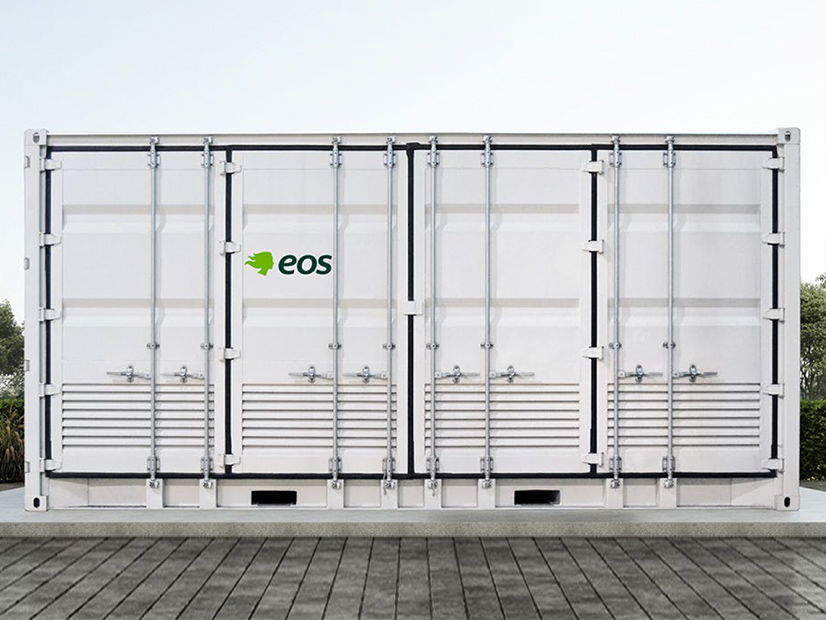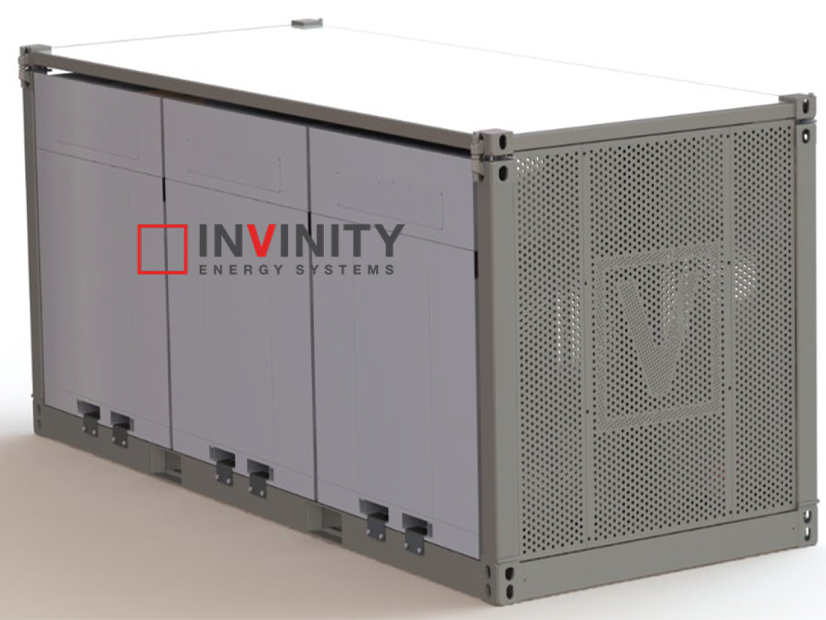
The California Energy Commission approved a $31.3 million grant Wednesday for a long-duration storage project that will pair vanadium-flow and zinc hybrid cathode batteries with carport solar panels on tribal land in San Diego County.
The 60 MWh microgrid project is the first recipient of a grant under the state’s new Long-Duration Energy Storage Program (LDES), funded with $140 million in the state’s recently enacted 2022/23 budget.
Long-duration storage is a priority in California, where the grid is increasingly reliant on variable renewable generation, especially solar, requiring longer storage discharge times to compensate for cloudy weather and extended interruptions from equipment failure, forest fires and extreme heat.
Approximately 3,600 MW of four-hour lithium-ion batteries have been installed in the past three years, but those batteries have limits, Erik Stokes, deputy director of the CEC’s Energy Research and Development Division, said.
Invinity Systems makes vanadium flow batteries being used in the 60 MWh project in San Diego County. | Invinity
“Currently, we’re relying on one technology for our energy storage needs in lithium-ion,” Stokes said. “Lithium-ion is a great technology. It’s really enabled us to achieve a lot of our clean energy progress, but it’s not a silver bullet. There’s been a lot of well publicized concerns about supply chain and safety issues with lithium-ion technology.”
The batteries are vulnerable to overheating and fires, and worldwide competition for lithium is straining supply. So, the state is seeking non-lithium resources able to discharge energy to the grid for at least eight hours and up to 100 hours.
Priority for LDES is being given to technologies on the verge of commercialization or positioned for widespread deployment within the next five to 10 years.
The project components approved Wednesday fit that bill because they have a successful history of field demonstrations and have attracted significant private capital to scale up manufacturing, the CEC said.
The zinc batteries, manufactured by EOS Energy Enterprises, do not use rare-earth minerals such as lithium, reducing risk in the supply chain, and they can operate at much hotter and colder temperatures than lithium-ion batteries, the commission said. The vanadium flow batteries, made by Invinity Energy Systems, have proven safe and stable and can perform for 25 years or more, the CEC said.
The project will be installed at the Viejas Band of Kumeyaay Indians Reservation and casino near the town of Alpine, California.
More LDES projects are set to follow. The CEC said it expects to provide $50 million to $180 million in total funding for long-duration storage next year through LDES grants and its Electric Program Investment Charge (EPIC) funding, which supports earlier-stage demonstration projects.



